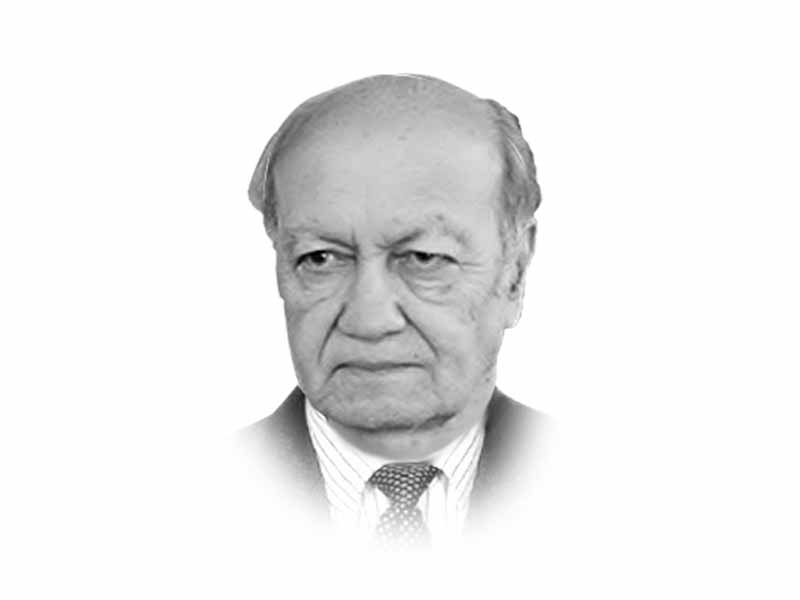
The current US approach indicates that President Trump, notwithstanding his idiosyncrasies, is pragmatic and has a set of priorities different from that of his generals who would like to continue with an unending war.
Even if the Taliban demands were met and they agree to a ceasefire it would not necessarily lead to peace in Afghanistan. There has to be a political understanding of the Taliban also with progressive forces that constitute mostly the urban middle class and elite of Afghanistan that previously were mostly part of the Northern Alliance and are Hazaras Tajiks and Uzbeks. Besides, the warlords that command support in their local areas will have to be taken into confidence. More importantly, the Taliban would have to ensure to the US that they would not allow any inimical groups like the ISIS to operate from Afghan soil. Assurance to deny the ISIS any space will not be difficult to implement, as it is as much in the Taliban interest. The most critical issue would be how the Taliban and the Afghan government and progressive Afghan forces agree to share power.
In many ways the emergence of Taliban as the major player in determining the future of Afghanistan vindicates Pakistan’s policy. But the more pertinent question is whether the emergence of Taliban in a bigger role beneficial, especially while assessing it in terms of its impact on society and the region as a whole. The other regional countries—Iran, Russia, China and also India would be reassessing their positions in the changing scenario. Already we were seeing that these countries had developed contacts with the Taliban leadership. India, of course, would have to make a major shift and develop a working relationship with the Taliban. It may not be difficult as the Taliban leadership has been fairly pragmatic and flexible in changing positions if it suits their interest.
The other significant event in the region is the Indian elections in April-May of this year. Indications are that the BJP would still secure the highest number of seats but with a lesser majority. A decisive victory for the BJP would make Prime Minister Narendra Modi more arrogant and dismissive toward Pakistan. It would turn India into essentially a Hindu state in which the security and freedom of minorities, especially Muslims, would be in danger. The situation in Kashmir would worsen which already is on the boiling point. What gives hope that the politics of hate and divisiveness is not paying back and PM Modi’s popularity and that of the BJP is on the decline. If the discontent is reflected in the coming elections chances are even if the BJP assumes power it would remain constrained and that may allow Modi to rethink his policy towards Pakistan. The BJP government has been using Afghanistan territory to destabilise Pakistan. Shrinking presence of the US in Afghanistan and a Taliban dominated government likely to emerge in Kabul would restrain India from indulging in anti-Pakistan pursuits.
In addition, on several policy fronts—Afghanistan, Kashmir and dealings with its own Muslim community India would need to revisit its policies. No doubt, its economy is doing consistently well and it has broad support of the Western world and the international community but it cannot overlook indefinitely the negative side of its foreign and domestic policies.
Meanwhile, as Prime Minister Imran Khan has indicated Pakistan will wait out until Indian forthcoming elections. The ball is in India’s court as far as its dealings with Pakistan are concerned. If still Modi or any other successor government moves forward Pakistan would reciprocate willingly.
The relationship with Iran is far more complex. Being an important neighbour with close cultural and religious ties one would have expected far closer collaboration in the economic and political spheres. International and US specific sanctions have adversely affected trade with Iran and major communication and energy projects are on hold. Besides, Pakistan and Iran’s economy are going through a major crisis.
Unfortunately, the Iranian and Pakistani Balochistan have remained restive that hinders smooth movement of people or trade to flourish. Pakistan has relied heavily on the armed forces to stabilise the region. Their efforts are commendable. They have focused on building schools, hospitals, and constructing roads. And now with Gwadar’s eminence due to CPEC and the connecting highway and other infrastructural projects, Balochistan has acquired greater importance. There is, however, need for addressing the genuine grievances of the Baloch youth who feel rightly or wrongly disfranchised. There has to be a serious attempt by the political government at resolving the injustices. A stable Balochistan would vastly contribute towards building bridges with Iran. Developing complementarity with Iranian port of Chabahar port in future would further serve the interest of both countries.
The Saudi-Iranian conflict that has sectarian and political overtones places Pakistan in a difficult situation despite its earnest efforts at staying clear of it.
Pakistan has always aspired to derive maximum strength from its geo-strategic location. The present regional situation though complex, presents once again an opportunity to maximise its potential.
Published in The Express Tribune, February 6th, 2019.
Like Opinion & Editorial on Facebook, follow @ETOpEd on Twitter to receive all updates on all our daily pieces.













COMMENTS
Comments are moderated and generally will be posted if they are on-topic and not abusive.
For more information, please see our Comments FAQ